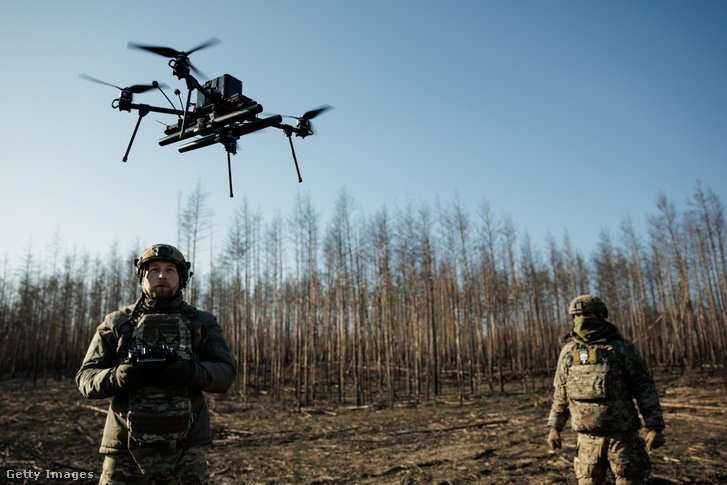
This is a remote special military operation to protect the Russian minority, which does not affect everyday life – this is roughly how Russian propaganda conveys the domestic position on the war against Ukraine. However, Ukrainian President Volodymyr Zelensky is determined to make the problem of the war affect the Russian population as well, and to this end, the Ukrainians are using a new tactic: preventing Russians from vacationing.
Ukrainian drones have been regularly forcing airspace closures over major Russian cities throughout July, resulting in hundreds of flights being cancelled or delayed. The most devastating period for Russian aviation was between July 19 and 22, when, according to the state news agency TASS, more than 500 flights were cancelled at airports in Moscow and St. Petersburg alone due to drones. The exiled Russian media outlet Meduza estimates that by comparison, only 100 flights were cancelled in all of 2024.
Ukrainian drones were most active on the nights of July 19 and 20. Over the two days, Russia shot down more than 230 Ukrainian drones, about 30 of them over the capital, Moscow, the Russian Defense Ministry says.
Russia launched an average of 209 long-range bomber drones per day in July, at least three times more than Ukraine is capable of. Russia also deployed an average of six cruise and ballistic missiles per day in July, which Kiev does not possess.
The goal is to disrupt summer vacation
We reported on Index that although the life of the average Russian has changed significantly since Russia invaded Ukraine on February 24, 2022, war is not part of everyday life. Russians are tired of it and prefer not to deal with it, and the regime makes them believe that the economic problems are not caused by the war, but by the West, which has joined forces to destroy their country. Vladimir Putin's regime is also careful not to deploy conscripts in Ukraine, thus keeping the issue of fighting out of everyday life. Ukraine plans to change this. Although there has been no official communication yet about what Kiev's goal is in disrupting Russian airspace, high-ranking government and military officials write that the goal is specifically to disrupt holidays and demoralize the Russian people.
These actions are destroying the morale of the Russian people. The Russians have only seen war on YouTube, but with our actions we are sending them a clear message: war is very real, and their comfort depends on what we do.
– military analyst Ivan Stupek told Kyiv Independent.
President Zelensky's only comment on the issue came in a July 26 statement in response to a Russian bombing attack, with the head of state of our eastern neighbor saying,"We cannot remain silent in the face of these attacks, and Ukrainian long-range drones guarantee this. Russian military, logistics, and aviation companies must feel the real consequences of the war."
Something has changed since Kursk
Ukraine first successfully brought the war to Russian soil on August 6, 2024, when the Ukrainian Armed Forces invaded the Kursk region in a relief and diversion operation, from which the Russian army only managed to expel them by March this year. The Ukrainian president has repeatedly emphasized during the past three years of war that in order for Vladimir Putin to be forced into negotiations, it is essential that Russia feels the threat on its own territory, and that there was a clear demoralizing intention behind the deployment of drones and the Kursk incursion.
The primary mission of Ukrainian drones is officially to attack Russian military industries, disrupting production, and to carry out precision strikes on military targets such as air bases, hangars, and barracks. One of the most recent strikes against Russia occurred on the night of July 26-27, when Ukrainian drones successfully bombed the Signal factory in Stavropol, in the North Caucasus, which produces military radio-electronic equipment. The attack also caused the Volgograd airport to be suspended and 70 flights to be canceled. Volgograd, Russia, is located about 600 kilometers from Donetsk, Ukraine, where the fighting is most intense, so it is clear that Ukraine is already able to penetrate quite deep into Russian territory.

They are also constantly disrupting Russian railways.
In addition to forcing the closure of airports and continuing to attack military infrastructure, Ukrainian drones also caused serious damage to Russia's railway network in July. The disruption to rail travel and the drone threat could be another demoralizing factor for the Russian population, as many people travel by train during the summer holidays.
The purpose of these drone attacks seems clear:
It is worth emphasizing that Ukraine is not attacking civilian targets, but is merely making its presence known to the Russian population through these unpleasant, disruptive sabotage actions. In contrast, Russia has repeatedly hit residential buildings with missiles or bombs in the past, killing countless civilians.

